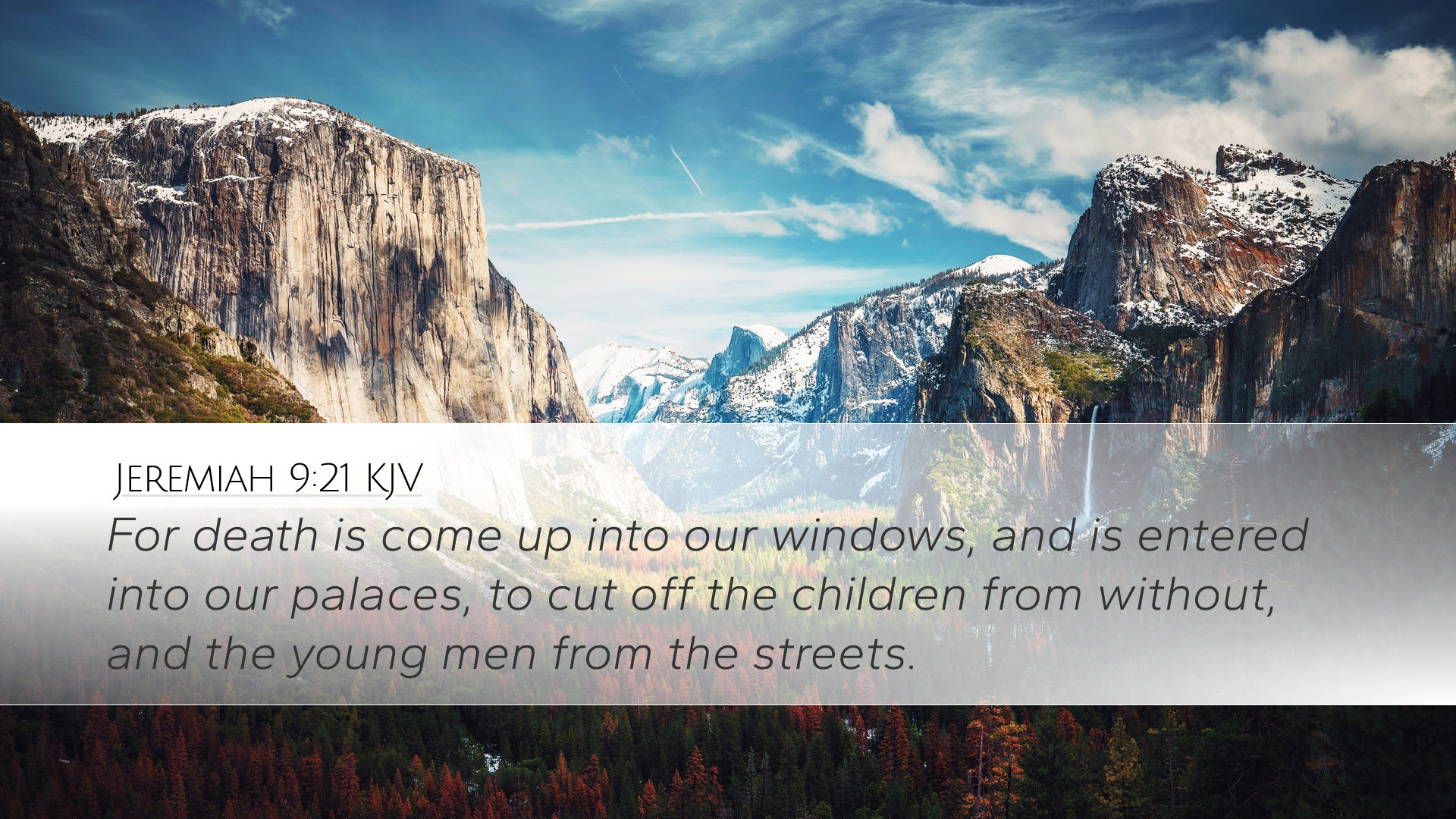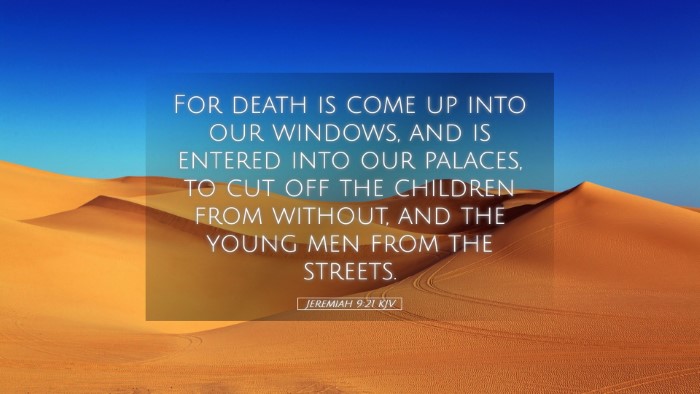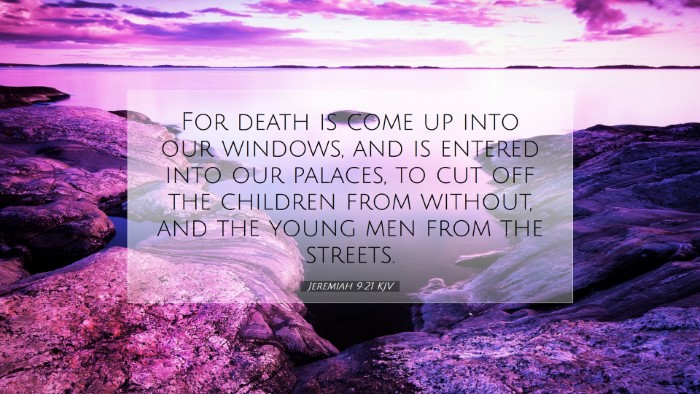Commentary on Jeremiah 9:21
Jeremiah 9:21 states: "For death has come up into our windows, and has entered into our palaces, to cut off the children from without, and the young men from the streets." This verse vividly portrays the dire situation facing the people of Judah as they confront the inevitability of death and destruction. Below is a synthesis of insights from various public domain commentaries.
Overview and Context
This passage is set against the backdrop of the prophet Jeremiah’s lament over the impending doom of Jerusalem. Throughout the book, Jeremiah emphasizes the consequences of disobedience to God and the resultant suffering. The imagery of death "coming up into our windows" signifies the inescapability of judgment that surrounds the people.
Insights from Matthew Henry
Matthew Henry’s commentary underscores the comprehensive nature of death entering not just homes but targeting the youth—those potentially able to impact the future. This manifests the depth of God’s judgment:
- Death in the Home: The windows symbolize vulnerability; death is no longer distant but has breached personal sanctuaries.
- Impact on the Young: The specific mention of "children" and "young men" indicates a particular sorrow—a lament for lost futures and unfulfilled potential.
- Judgment as Inevitable: Henry reflects on how divine judgment is inescapable when society neglects righteousness.
Insights from Albert Barnes
Albert Barnes provides a deeper theological reflection on the implications of this verse:
- Symbolism of Windows: Barnes explains that windows are metaphors for enlightenment and vision. Death entering through windows signifies a loss of insight and hope.
- Collective Fate: Barnes notes that the communal aspect of suffering is significant. The demise of youth indicates a society that has lost its vigor and moral compass.
- Theological Reflection: Barnes posits that this verse serves as a warning. God's people must recognize the seriousness of sin and the imminent consequences if they fail to repent.
Insights from Adam Clarke
Adam Clarke elaborates on the implications of mortality within the societal context:
- Death as a Reality: Clarke stresses the harsh reality of death touching every part of life. The invasion of death into homes exemplifies the pervasive nature of calamity due to spiritual decline.
- Generational Consequences: Clarke notes that the destruction of the younger generation has dire implications for societal continuity and legacy. Their absence signifies the end of hope.
- Call for Reflection: Clarke encourages readers to contemplate their own lives in light of this verse. It serves as a reminder to embrace righteousness for the sake of future generations.
Application for Pastors and Church Leaders
This passage presents a profound narrative not only of tragedy but of divine lesson. Here are some points for application:
- Preparation for Challenges: Leaders can use this passage to help their congregations understand the seriousness of sin and its consequences, preparing them to face challenges with faith.
- Teaching Resilience: This verse can encourage teachings on resilience amidst impending doom; emphasizing God's mercy and call for repentance.
- Emphasizing the Value of Youth: Pastors should stress the importance of investing in the young, for they are the future of the church and community.
Conclusion
Jeremiah 9:21 serves as a powerful reminder of the consequences of turning away from God and the inevitability of judgment. Drawing from the wisdom of past commentaries, it is evident that this verse warns against complacency and a lack of spiritual vigilance.


